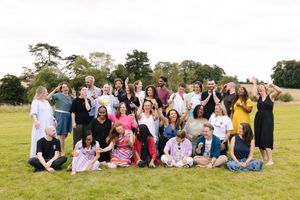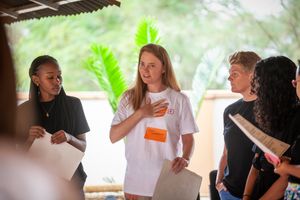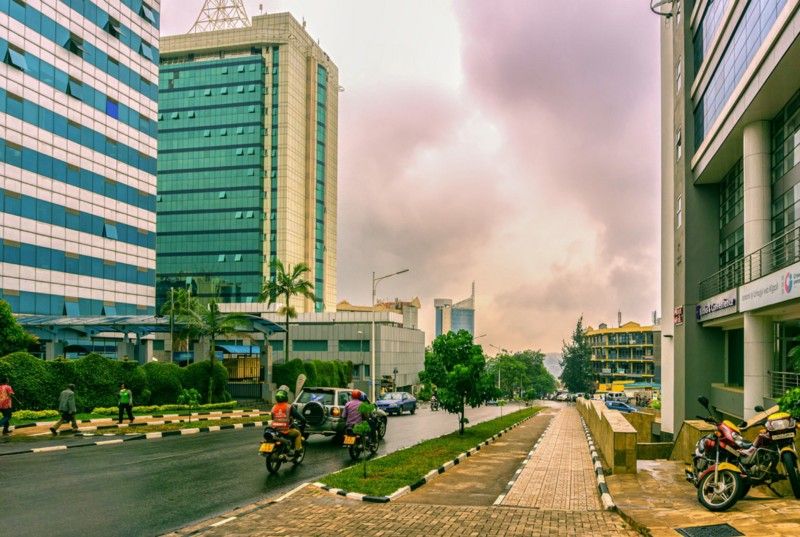
African cities going digital
What will a digital revolution look like for the continent?
So here we are! A new decade… Here at Brink, we’re thinking about the big themes that will affect society in the future, and how organisations can adapt to and embrace this future using our unique way of working; one that considers the human experience behind innovation, which we call Behavioural Innovation.
Through the work we do with our partners — who range from national governments to grassroots organisations, across 30 countries — one thing is clear: that the 2020s will see digital technology be increasingly looked at to solve some of society’s most pressing problems.
By the end of this shiny new decade, we will have reached the end of the Sustainable Development Goals (SDGs), the UN’s ambitious agenda for 2030. This will be a time to reflect on the progress made towards the big, global challenges, which include extreme poverty, universal education, environmental sustainability, and inequality.
Africa has the potential to transform with digital technology
Africa is widely seen as a priority area in achieving the SDGs, as the challenges the continent faces are often the most critical. There is great potential for digital technology to help meet these challenges, because development in digital infrastructure, particularly in cities, provides a growing opportunity for digital technology to turbocharge Africa’s development.
But there are also many issues to bear in mind if we want to make sure African countries make the most of a digital transformation over the coming decade.
How technology is deemed appropriate for each context is crucial: we can’t assume that what works in one country, for example, carries over.
Brink is collaborating with The French Development Agency, AFD, to bring the idea of the “smart city” to African towns and cities through the ASToN network. For the next two years and beyond, we’ll be working with city government departments responsible for providing public services, helping them to experiment, get curious, test, and learn. From mobility to citizen participation, cities are exploring topics they think digital technology can help to solve. We’ll be supporting them to learn from each other and share their own stories as part of the network.
And we’ll be learning with them along the way. From this early stage in the project, we’re seeing major paradigm shifts that we think will characterise the roaring ’20s for digital technology in Africa.
Let’s talk about three of the most significant trends we’ve seen so far:
A bigger and younger population expects more from digital technology
Africa is going through a massive demographic transition. In 2030 the continent will be home to about 1.7 billion people, which is over 40 percent higher than in 2015.
Urbanisation is also happening across towns and cities throughout the continent. By 2030, Africa will host 6 of the world’s 41 megacities.
Many of these cities will have challenges surrounding infrastructure and public services that we haven’t had to deal with yet.
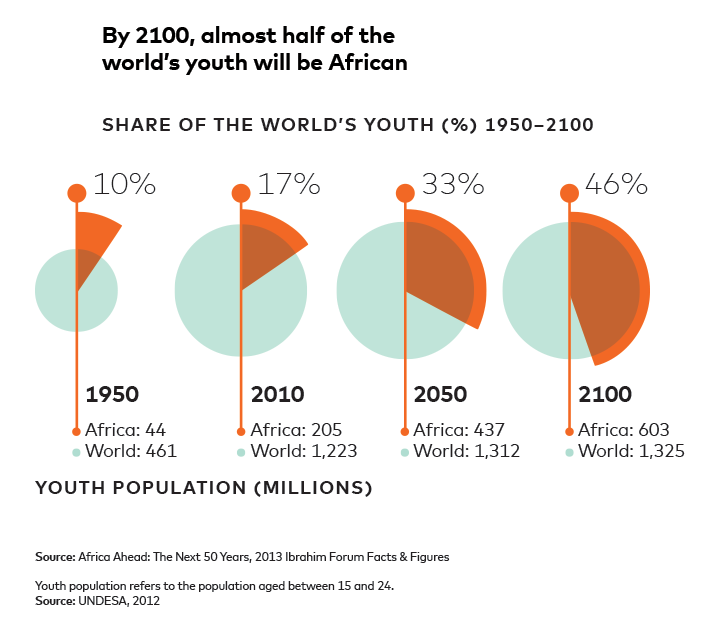
Along with the general population, the proportion of young people in society will continue to grow dramatically over the coming years. Young people are better connected, better educated, and demand more than previous generations in terms of immediate changes from their government. We will, therefore, see a greater proportion of the African population be able to converse digitally and be part of the workforce.
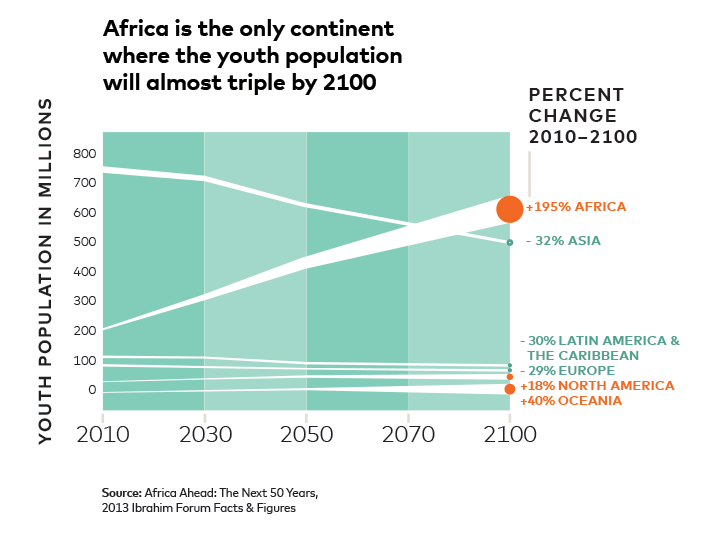
We believe it is important for African governments to make sure they can anticipate changes in the global economy and capture the potential of this “demographic dividend”. The work ahead is to ensure more investment and a closer eye on education and skills, so they truly match the future of work.
Consider this. There may be a differentiation between those who are able to adapt to the new demands of the labour market — arguably one that is more digital — and those who are unemployed or stuck in more mundane, dangerous, or less desirable jobs. When it comes to African youth, how do we make sure we leave no one behind?
Mobile signals the way forward
While not a new trend by any means, investment in digital connectivity is growing worldwide. And the global race is on, which means worldwide coverage is close to becoming a reality. Fibre cables are being laid across Africa in all directions, and an increasing number of satellites are being put into Earth’s orbit.
In Africa, where fixed broadband penetration is very low (about 2 percent), infrastructure investment is usually made up of wireless connectivity, where mobile phone technology reigns supreme. Over 50 percent of people who accessed the internet in Africa in the last three months did so exclusively from a handheld mobile device. Internet-connected mobile phones will continue to grow in significance as a conduit of personal information.
While African markets are not yet ready for 5G, we see the network as being crucial for African economies by the end of the decade. Ericsson estimates that 5G-enabled revenues in Africa will be worth $10.5 billion by 2026. The figure is high because early adopters of 5G will conduct highly productive activities, like manufacturing, extractive industries, and healthcare.
Governments should anticipate the development of their own digital services with next-generation connectivity in mind.
Overall, it is unclear what connectivity will look like in Africa by 2030. It depends on investment in infrastructure, consumer demand, and the prevalence of digital skills. One thing that’s certain for the coming decade is we will see more Africans use a mobile phone connected to high-speed internet, with all the possibilities that will bring, from access to education, finance, e-health, and closer interactions with government.
It’s time to think ethics
As soon as we collect, share, and use data to make decisions, we have the potential to adversely impact people and society. Data ethics is the consideration of the principles surrounding personal data. For example, facial recognition has the potential to change how people interact with services, as well as the kinds of data governments can collect on their citizens. But we also have to consider what this technology means for privacy and personal risk.
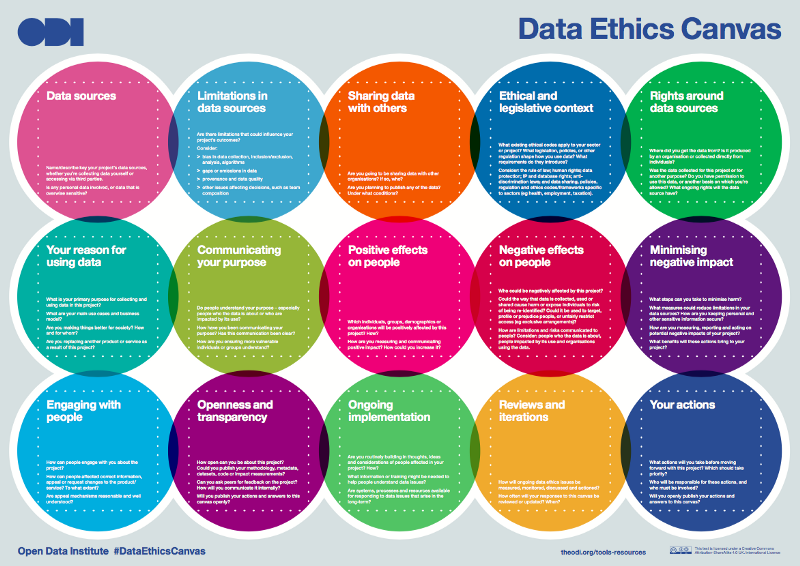
Brink is working with African governments who have to consider the trade-offs for certain technologies with data ethics in mind.
Over the coming years, African states are at risk of leaving themselves a legislative black hole, in which sophisticated enterprises conduct their activities without much oversight.
We’ve seen how growing interactions between people on social media leads to misinformation, and how increased use of the internet, for all its benefits, can also undermine democracy or spread dangerous ideologies. Much work needs to be done, both nationally and within the African Union, to create a data policy that allows for a digital transition while avoiding these negatives as much as possible.
The coming decade will be home to a digital revolution in Africa. The challenge is keeping up with the speed of change and making sure that the benefits of digital technology are felt widely across the continent.
These are our early insights, and we’ll be sharing more as we go, here and on the ASToN website. What have we missed? Let me know in the comments below, or on [email protected]. Over the coming months, we’ll be visiting more cities across Africa, from Morocco to Mozambique, exploring how cities can use digital tech to create better futures.




